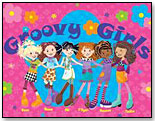| “ ... with a soon-to-be infinite number of distribution routes available on the Web, and easy content creation, what will be the next big thing?" |
Hollywood? Licensing? Toys? Nada?
Gone are the good old days: Someone would make a toy, someone else would make a TV series about the toy and everyone was happy. Then, syndication hit, and someone made a TV series, someone made a toy and everyone was happy.
With the rapid change in distribution of television shows and movies, Pixar and Disney joining forces, Yahoo and Google becoming content providers (And how can Apple be far behind?), Fox’s My Network TV, etc., will the toy industry again be left behind by the paradigm shift, as they were when video games emerged? Where will the licensing that the industry relies on come from?
Licensed toys have hovered between 60 and 65 perc ent of the market for a number of years (and whereas the toy industry sales have been dropping on the whole, licensed toy sales are on the rise). If that takes a downturn because iconization of licensees takes a downturn because viewing habits change (no central figures, but many, many little ones), what will happen to the toy industry? Will it respond?
ent of the market for a number of years (and whereas the toy industry sales have been dropping on the whole, licensed toy sales are on the rise). If that takes a downturn because iconization of licensees takes a downturn because viewing habits change (no central figures, but many, many little ones), what will happen to the toy industry? Will it respond?
I was at Toy Fair in New York (don’t even think to ask about the blizzard … no big thang, even for a LaLaLand kid like me), and it was kinda interesting what I heard: Licensing was king, with Nick and Cartoon Network leading the way (and the perennial Disney), but things were branching out. Niches were developing.
Groovy Girls was being developed for television and online video distribution by Silver Lining Productions. The Betesh Group had some very cool licensed products coming out with Groovy Girls, and … neato, keeno, it could work. But who’s going to watch it? No one could answer that. But at least the big cheeses in this situation were well aware of the convergence factor.
Many others at Toy Fair were not.
“Convergence?” mentioned one toy manufacturer, “Isn’t that a new board game?”
“Internet TV?” said another, “I barely have time to watch real TV.”
“I couldn’t program my VCR,” volunteered a last toy person. “Satellite confuses me, and I get my kid to do the Internet. I make toys.”
I “did breakfast” with a VP of development from Warners who basically said they didn’t know what was going on. The message I heard was: “If everyone tunes into a different channel, how can we monetize?” And that’s the key: With a soon-to-be infinite number of distribution routes available on the Web, and easy content creation, what will be the next big thing? And how will toy companies know if they don’t stay abreast of it?
Sam Cooke had it right: “A change is gonna come.” But will the toy industry ride with it, or be left behind?

